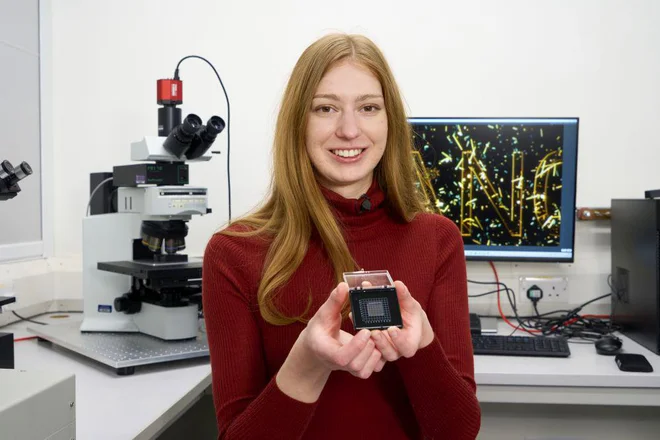The archive with war files of Dutch people is open for six months. The minister also discovered that his grandfather had been ‘wrong’
:format(webp)/s3/static.nrc.nl/wp-content/uploads/2024/09/10152538/data121548455-54a214.png)
A junk register full of errors: party leader, Joost Eerdmans of JA21, was short of words last January to describe the chaos after partial disclosure of the war files at the National Archives. That is more than 450,000 criminal records of Dutch people who were suspected of collaboration with the Germans after the liberation. In January it was only about the names register of those suspects, which was put online. A list that, according to Eerdmans, stood his own grandfather, who does not belong on it. Because his grandfather had a resistance history, with even Jewish people in hiding in his house. Van Eerdmans had to be mentioned on that list. Just like with all those other people who were wrong. « They want to have corrected that. Do you understand that? », He wanted to know from responsible minister, Eppo Bruins (Education, Culture and Science, NSC).
With the knowledge of today I could not have taken my family into that political debate
But Eerdmans now regrets his argument. Because there have never been people in hiding with his grandfather at home, he now knows. He also finds out that his grandfather had been a member of the Dutch Volksdienst (NVD) in the war, six months in 1942. The NVD was a National Socialist Aid Organization that did not help Jews, Disabled, Roma or Sinti. Eerdmans knows that because his father’s sister has now viewed the family file. « Those comments about my grandfather were unjustified, » he looks back now. « With the knowledge of today, I could not have taken my family into that political debate. »
Eerdmans is not the only one who discovered his family history after releasing the ‘pairer register’. Since its publication and the limited opening of this archive itself, around 16,000 files have been requested from the National Archive by 3,500 family members, five times more than last year. In practice, this has led to threats and defamation campaigns on social media, according to the Stichting Werkgroep Herkenning, a interest group of families of the Dutch people who was investigated at the time. « People feel overwhelmed, hurt and sometimes even threatened, » the working group writes in a letter to the minister and the House of Representatives.
Read also
My family was wrong in the war. And everyone can know now
Boundary suspicions
Nevertheless, the number of complaints and reports at the National Archives and the Dutch Data Protection Authority (AP) has been limited. A few dozen complaints were about unjustified entries in the names register, in seven cases there was a request to remove files. According to a spokesperson for the National Archive, those complaints are handled by an external ethical advisory committee.
It is now also known that there are criminal files, still unknown how much, to which privacy -sensitive correspondence, also of living relatives still live, has been added until well after the war. A spokesperson for the Dutch Data Protection Authority speaks of ‘well -founded suspicions that personal -sensitive information has been added to the archives after the war.
Nevertheless, Minister Bruins also wants to publish all those criminal files online. He recognizes the chaotic planning of the war archives and the names register. « Unimaginable things have happened in the Netherlands in the chaotic period after the Second World War, » said Bruins in the Lower House. And those war archives are a direct impact of this. But he also believes that it is not up to the National Archives to filter out the good or wrong Dutch people afterwards. Bruins wanted to put the war files online at the beginning of this year. But the Dutch Data Protection Authority blocked That at the end of last year because of the privacy of possibly still living perpetrators or their family members in those files.
Read also
Sheila Sitalsing only recently discovered that her grandparents were NSB members. ‘I thought: apparently this is a big secret’
Grandpa error, grandma good
As a result, the family of victims (betrayed resistance fighters or deported Jews) still have no inspection of their files. This is also apparent from the visitor registration at the National Archive, since the beginning of this year. Families of victims are not or hardly anyway, confirms the National Archives. Because all those criminal files are registered in the name of the then perpetrators, the names of victims cannot be sought.
Bruins wants to make that possible with a change in the law, which he puts the finishing touches on. He also grabs, just like Eerdmans, on his own family history. He found out through the war files that his grandfather had been ‘wrong’. And that his grandmother, while her husband was stuck, had offered shelter to a Jewish couple, he told during the commemoration of the dead in the former Amersfoort camp. « That is why I continue to fight that those files can also be consulted online. (..) Survivors must be able to find more information about the fate of their loved ones. Also about the uncomfortable facts that are in the archives. »
Weapons for the resistance
The 99-year-old Annie Wansink family also found out at the beginning of this year those ‘uncomfortable facts’. Wansink still lives with memories of the resistance history of her family. And to her great childhood love, Gijs Hofland. When she fell in love with him, she was just 18, she knew he was in the resistance in Amersfoort and could not talk about it. Wansink did not do that herself either, while she, too, had to deliver coded notes, notes with groceries for Radio Oranje in London. Her father and her brothers ran a transport company and occasionally trucks had to ‘disappear’ to prevent the Germans from seizing them.
But when the names register came online at the beginning of this year, her father and his cousin also appeared to be there. Collaborators? Lecture of those two files shows differently. The cousin mainly did business with the Germans to arrange uniforms and weapons for the resistance. In 1943 he was caught stealing uniforms in Antwerp in Antwerp. Then he was in hiding until the liberation and he did odd jobs for the resistance, including the spectacular liberation of resistance fighter Maarten Schakel in 1945.
Father Wansink could not withdraw from jobs for the German Wehrmacht with his transport company. But that he has committed sabotage where possible, it is clear from the interrogations. Also that he has supported the resistance financially and equipment. Annies Youth Love was arrested just before the liberation and locked up in Amsterdam. Annie waited for him for three years, until in 1947 the message came that he had died in the Neengamme concentration camp on April 17, 1945.
/s3/static.nrc.nl/images/gn4/stripped/data132553893-f3afb4.jpg|https://images.nrc.nl/_34e3LjJapu3x21EfJCdp8w0ReY=/1920x/filters:no_upscale()/s3/static.nrc.nl/images/gn4/stripped/data132553893-f3afb4.jpg|https://images.nrc.nl/Sso8EjIlNEjEPVie8m-HQFhX7KU=/5760x/filters:no_upscale()/s3/static.nrc.nl/images/gn4/stripped/data132553893-f3afb4.jpg)
Photo Jeroen Jumelet / ANP
With his change in the law, Bruins wants to make online publication of those war archives possible. Where it is up to the archivist to make a trade -off between the privacy interest of living and the importance of publicity. The Jewish community welcomes that. It is not without reason that the scanning, digitization and online publication of that 25 million-page archive is co-financed by the Remembrance and Documentation Center, Yad Vashem and an American Holocaust Museum.
« The descendants of perpetrators and suspects have had access to those archives for personal truth and processing in the last twenty years, » said the Central Jewish Consultation (CJO) in response to the bill. « These possibilities are Jews and other victims. It is poignant that (descendants of) perpetrators try to limit this right with reference to their own reputation damage or shame. » The bill that makes online publication of those archives possible is expected to go to the Lower House after the summer recess. It is still unclear what the Dutch Data Protection Authority thinks.
Read also
Why don’t war files come online? ‘You can’t say: you are ninety years old, privacy matters less’

:format(webp)/s3/static.nrc.nl/wp-content/uploads/2025/04/22144317/data131035958-764852.jpg)
:format(webp)/s3/static.nrc.nl/wp-content/uploads/2024/12/30135652/data125953852-782f4c.jpg)
/s3/static.nrc.nl/images/gn4/stripped/data132608305-d13032.jpg|https://images.nrc.nl/a7qunwvmw9uTBH0__HIuksj2e5o=/1920x/filters:no_upscale()/s3/static.nrc.nl/images/gn4/stripped/data132608305-d13032.jpg|https://images.nrc.nl/Bl-Z8DVjKul-t8NNw3QQVfpFfAU=/5760x/filters:no_upscale()/s3/static.nrc.nl/images/gn4/stripped/data132608305-d13032.jpg)
:format(webp)/s3/static.nrc.nl/wp-content/uploads/2025/03/06185419/0503BIN-SouvereinVolledigRGB.jpg)
/s3/static.nrc.nl/images/gn4/data132620517-ebb768.jpg)




